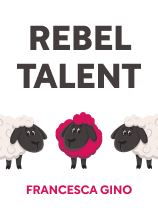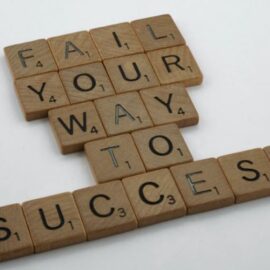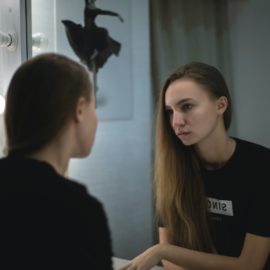

This article is an excerpt from the Shortform book guide to "Rebel Talent" by Francesca Gino. Shortform has the world's best summaries and analyses of books you should be reading.
Like this article? Sign up for a free trial here.
Why is knowledge important? Why should you expand your base of knowledge?
According to Francesca Gino in her book Rebel Talent, rebels walk into every experience with the goal of learning something from it. They also build on their existing knowledge base, which allows them to realize their greatest potential.
Here’s why knowledge is important in your life.
Why Building Your Knowledge Base Is Important
Below we’ll look at two reasons why knowledge is important, according to Francesca Gino.
Reason 1: When you commit to being a lifelong learner you can see situations from angles you haven’t considered before and tackle problems more effectively.
For example, teaching is a profession filled with lifelong learners who are curious about and committed to constantly growing, gaining knowledge, and seeing things in new ways—both for their own edification and the benefit of their students. Lifelong learning is built into their professional lives through ongoing professional development sessions. Teachers drew upon their abilities as lifelong learners when the COVID-19 pandemic hit—when the school doors shut, they pivoted to reimagine classroom instruction.
(Shortform note: In Ultralearning, Scott Young takes the idea of being a lifelong learner to the next level by offering a conscious and strategic approach to doing it. Young argues that when you make a concerted, intensive, and self-directed effort to learn, you can increase your competitive advantage and improve your well-being by developing new skills that can advance your career and enhance your confidence in your abilities.)
Reason 2: When you stop taking in new information because you think you know everything, you’re more likely to act in ways that negatively impact other people.
Following a 2006 FDA warning about the dangers of using of a specific medical device in ways the FDA hadn’t approved, Gino and her colleagues examined data on 147,010 angioplasty procedures conducted by 399 cardiologists. They found that doctors with more experience were more likely to continue using the devices than doctors with less experience.
Gino adds that believing you know something with absolute certainty can also lead to the curse of knowledge, a phenomenon where people with expertise in a particular area assume that everyone they talk to knows exactly what they’re talking about. This makes it harder for people with less expertise to understand, make decisions, and take action based on the information being communicated to them.
(Shortform note: Arizona State University researchers are fighting the curse of knowledge head-on—in academic writing. They developed an online “Writing Clarity Calculator” that analyzes text that scholars submit, to help them understand how accessible their writing is to others. The tool scores their work in three areas reputed to make scholarly writing hard to understand: its level of abstraction, technicality, and use of passive voice.)
Gino says you can avoid problems that stem from believing you know everything by employing counterfactual thinking, a strategy where you consider the different ways a situation you went through might have unfolded instead. This can make you more aware of alternative choices you might make in future situations.
(Shortform note: Gino points to the benefits of counterfactual thinking, but she doesn’t mention a possible downside: The process may have detrimental effects on people with anxiety and depressive disorders, for instance by triggering feelings of helplessness and powerlessness.)
If You Think You Know Everything, Look for These Blindspots
Gino’s findings may be explained by the “Dunning-Kruger Effect.” This effect is typically understood as a phenomenon where less knowledgeable people overestimate their competence, and people with greater knowledge underestimate theirs. But it can also impact highly intelligent, experienced people who lack insight into, and the capacity to reflect on, their abilities. In fact, findings of two studies suggest that people who are less open to questioning and revising their ideas are more likely to overestimate their performance.)
In Multipliers, Liz Wiseman offers a different take from Gino on the problem of knowing it all, saying that “knowledge diminishers” (leaders who operate under the false assumption that they know or have to know more than everyone else around them) compromise their teams’ ability to perform at their peak. Knowledge diminishers show off how much they know, devalue their team members’ intelligence, and engage in practices that curb their team members’ autonomy and independence.

———End of Preview———
Like what you just read? Read the rest of the world's best book summary and analysis of Francesca Gino's "Rebel Talent" at Shortform.
Here's what you'll find in our full Rebel Talent summary:
- Why you should tap into your inner rule breaker
- A guide on how to break the rules constructively
- The three principles for becoming a rebel leader






